Execution of Four Prisoners Sparks Outcry in Iran
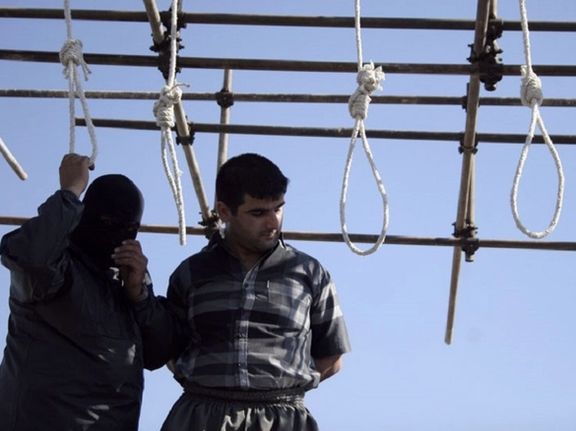
Four prisoners were executed at jails in Iran on Wednesday, as the Islamic Republic added to its toll of hundreds of lives taken in capital punishment this year.

Four prisoners were executed at jails in Iran on Wednesday, as the Islamic Republic added to its toll of hundreds of lives taken in capital punishment this year.
Zabihollah Arjmand, 35, was hanged in Dehdasht Central Prison, according to US-based Human Rights Activists News Agency (HRANA).
He had been arrested in 2019 on charges of drug trafficking and subsequently sentenced to death.
Two Kurdish prisoners, Khaled Rouhi and Sirous Heydari, were executed in Sanandaj Central Prison, on charges of murder.
Human Rights Organization Hangaw reported that Heydari had been sentenced to death 12 years ago, while Khaled Rouhi had been condemned to death four years ago.
A prisoner in Saqqez Central Prison was also executed, having been sentenced to death on rape charges.
United Nations Secretary-General Antonio Guterres reported to the General Assembly in October on human rights violations in Iran. He warned that at least 419 executions had been carried out in the first seven months of the year alone in Iran, a shocking rise of 30 per cent over the same period in 2022. More than half of those sentenced to death had been found guilty of charges related to drug crimes.
The Iran Human Rights Organization reported on Thursday that the number of executions carried out by the Islamic Republic since the beginning of this year has reached 707 individuals, marking an unprecedented increase over the past eight years.

Iranian singer Tataloo has been sent to the Islamic Republic by the Turkish authorities to face judicial charges.
The rapper whose real name is Amir-Hossein Maqsoudlou was handed over at the Bazargan border on Wednesday after being detained in Turkey, according to Mizan News Agency, affiliated with the Iranian judiciary.
He is said to have been "immediately detained on judicial orders" after a number of private complaints.
These include allegations against him from individuals under 18 and their families, accusing him of sexual assault and acts of violence.
Iran's hardliners frequently express disapproval towards artists and public figures, leading to the summons of numerous individuals on various charges including alleged violations of modesty.
Earlier, Behnam Babazadeh, a music journalist based in Iran, had reported Tataloo's detention by Turkish police following a complaint from the Consulate of the Islamic Republic in Istanbul.
Babazadeh stated that Tataloo was accused of insulting the staff of the consulate.
Four years ago, Tataloo was detained by the Turkish authorities at the request of the law enforcement forces of the Islamic Republic but released after a week. At that time, Iranian media accused him of insulting Shiite religious figures during one of his concerts.
Born in 1987 in Tehran, Tataloo rose to prominence when he started posting works on his blog in 2004. At times, he has endorsed religious values such as hijab and praised the Supreme Leader of the Islamic Republic, Ali Khamenei . He supported Ebrahim Raisi in the presidential elections of 2017.
Tataloo's alignment with regime policy was such that Khamenei commended one of his songs titled "Nuclear Energy” – which proclaimed Iran’s right to defend itself – as having a "good melody" and "good content", adding with satisfaction that it had upset the "enemy."

The FBI Director has warned that threats from entities like Iran cannot be effectively countered if Congress fails to renew a spying authority set to expire on December 31.
In a Senate hearing Tuesday, Christopher Wray warned that Section 702 of Foreign Intelligence Surveillance Act (FISA) is key to US national security and its ability to combat foreign terror.
“When it comes to foreign adversaries like Iran, whose actions across a whole host of threats have grown more brazen… or the People’s Republic of China, which poses a generational threat to our economic and national security, stripping the FBI of its 702 authorities would be a form of unilateral disarmament,” Wray said.
Section 702 of FISA allows intelligence agencies to monitor non-Americans outside the US and collect and analyze their communications, such as emails and text messages.
Calls for changes to Section 702 have emerged in Congress following revelations that the FBI improperly searched the database for exchanges with US citizens, including political protesters, campaign donors, and even members of Congress.
Critics argue that FISA 702 has become a backdoor to investigate Americans without warrants. However, the US government and the intelligence community contend that recent reforms prevent such abuse, and additional red tape would neutralize the tool in the face of foreign threats.
"In the last couple of years Iran has tried to assassinate a former US national security advisor on US soil,” Wray reminded the Senate Judiciary Committee.”[Iran] has tried to kidnap and kill an American journalist in NYC… and for extra credit, has tried to interfere in the last presidential elections. " He was referring to plots to kill former Secretary of State Mike Pompeo as retaliation for the targeted killing of IRGC militant mastermind Qasem Soleimani in Baghdad, in January 2020.
US officials say Section 702 has been critical to stopping weapons sales to Iran before, and “in 2022 to help the administration target an individual and foreign firm that attempted to circumvent US sanctions on Iran,” according to Politico.
Intelligence agencies had identified what the Iranian regime needed for its advanced weapons program, and then searched for those (including names of components and manufacturers) in the 702 database.
In his Senate hearing Tuesday, the FBI director warned again that “allowing 702 to lapse, or amending it in a way that undermines its effectiveness would be akin to laying bricks to rebuild another, pre-9/11-style wall.”
Opponents of the 702 say it invades Americans’ privacy, undermines trust, and oversteps constitutional boundaries. Some US lawmakers are proposing changes that would require a warrant to utilize the database for investigating US citizens.
Senator Mike Lee, one of the more vocal critics of Section 702, grilled Wray on potential abuses of the tool.
“When the FBI is allowed to police itself, and need not go to court to get a warrant based on evidence establishing probable cause—like every other law-enforcement agency in America—it abuses its power under FISA,” he later posted on X.
“When Wray insists that a warrant requirement would just be too difficult for FBI to comply with, that isn’t surprising,” Senator Lee said. “It's supposed to be hard for the government to spy on Americans. That's why we have a Constitution.”
It is expected that the Judiciary Committee proposal and a House Intelligence plan are introduced as amendments Wednesday, “moving forward only with the proposal that gathers the most votes,” according to Politico.
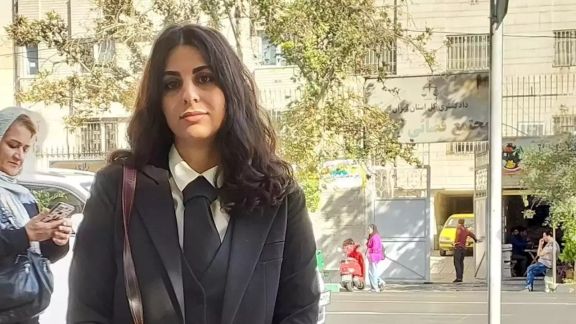
Iranian civil activist Sepideh Rashno has condemned as “absurd” the four-year prison sentence she is facing over hijab defiance.
Rashno’s outspoken response comes after the regime sentenced her on several charges.
In a post on her Instagram account on Tuesday, she said, "Four years of imprisonment for having hair is just as absurd as if someone were imprisoned for having hands or feet."
Rashno added in a defiant statement targeted at the Iranian regime: "Don't be happy either. Four years of captivity cannot create a change in reality. You are defeated by [people’s] awareness."
Rashno was arrested on July 16, 2022, after a video went viral of a woman haranguing her for failing to wear a veil on public transport. Rashno was later tortured into a televised apology for her actions and for the confrontation. In the “confession” video, there were bruises on her face suggesting she had been tortured. Rashno was released from Tehran’s Evin prison after about 40 days on bail of about $27,000, a huge sum for ordinary Iranians.
She has been found guilty of "association and collusion with the intent of endangering national security" and "propaganda against the Islamic Republic".
She now faces a sentence of 3 years and 11 months.
On Tuesday, Milad Panahipour, Rashno's lawyer, announced the initiation of a third case for his client, revealing that the appeals court had sentenced her to 4 months of definite imprisonment on charges of “publishing obscene images on social media.”
Rashno gained renewed attention last month when a photo circulated online of her meeting with protest rapper Toomaj Salehi after his release from jail having been accused of “spreading propaganda”’.
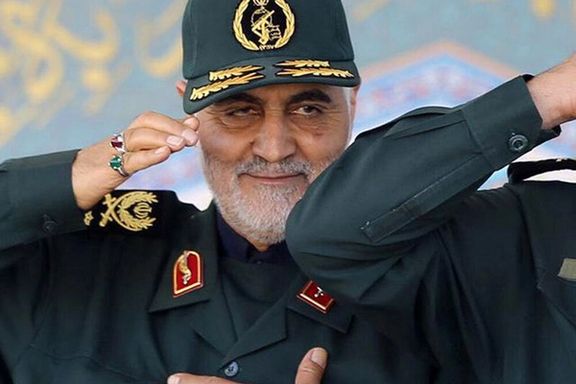
An Iranian court looking into the killing of IRGC's Quds commander Qassem Soleimani has awarded damages of almost $50bn against the US government and linked individuals and bodies.
Judicial officials also demanded an apology for the killing of the Soleimani in a drone strike near Baghdad International Airport in January 2020.
Then US president Donald Trump justified the action by saying that Soleimani was actively planning attacks on American diplomats and service members in the region. Trump also claimed the veteran regime commander was already "directly and indirectly responsible for the deaths of millions of people”.
Now the 55th Branch of the Legal Court of International Relations of the Tehran Justice Department has ruled against the US government and 41 other individuals and entities, ordering them to pay a sum of $49.77 billion in connection with the killing.
The court also ordered that the US government and the others held responsible for Soleimani’s death should issue a formal apology, with instructions to publish it in a widely circulated newspaper.
The sentence comes after judicial officials had ruled in favor of more than 3,000 plaintiffs who had filed complaints claiming that they had suffered damages as a result of Soleimani’s death.
Iranian Foreign Minister Hossein Amir-Abdollahian previously stated in January that nearly 60 US officials had been blacklisted by Tehran for their involvement in the assassination of Soleimani.
Both Iran’s President Ebrahim Raisi and Supreme Leader Ali Khamenei have repeatedly vowed revenge for the killing of Soleimani.
Since Soleimani’s death, a member of the Iranian Revolutionary Guard has been charged with planning to assassinate John Bolton, the former US National Security Advisor, as retaliation for the military commander’s killing. Former Secretary of State Mike Pompeo was also identified as a potential target in the same plot.
Qassem Soleimani played a crucial role in Iran's external military and intelligence operations, overseeing support and organization of militant proxy forces, including Lebanese Hezbollah and Iraqi Shiite militia groups engaged in hostilities against US forces in the region.
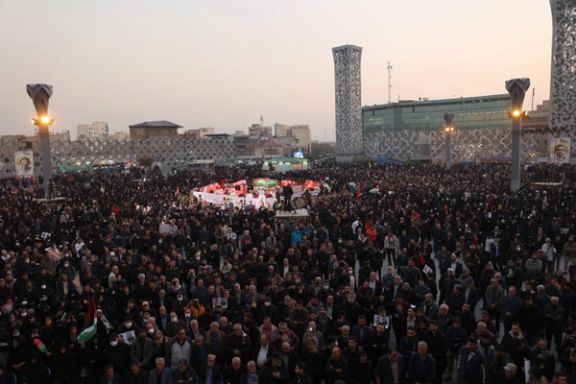
Israel is not systematically targeting Iranian forces in Syria, Fars news website affiliated with the Revolutionary Guard stated on Tuesday, downplaying repeated air strikes.
Iran caught between Israel’s military operation in Gaza that has squeezed Tehran’s ally Hamas and Israeli air strikes in Syria, appears to be trying to defend its reputation and military credibility. Fars wrote that foreign media claim “Israel has been serially attacking Iranian positions in Syria. However, these assertions are far from reality. Israel has no intention or audacity to launch a deliberate attack on Iranian forces."
Fars’ claim contradicts the history of Israeli attacks on Iran-related targets in Syria that have been routinely taking place since early 2017. Hundreds of attacks have been carried out by Israel targeting weapons depots, forward positions, and Syrian airports that Iran uses to transport its weapons into the country. At least twenty such attacks took place in 12 months from April 2022 to April 2023. According to Israeli sources 100 attacks took place before 2017, and by the end of 2018, the number had already climbed to 200.
Iran became involved in the Syria civil war in 2011 and started to send military personnel to the country. It also deployed Afghan, Iraqi and other militias to fight on the side of Bashar al-Assad’s forces, but its main fighting force was considered to be the Lebanese Hezbollah. However, Iran also began shipping weapons solely for Hezbollah to store in Lebanon for possible use against Israel.
The air attacks often targeted these shipments, whether in warehouses in Syria or en route to Lebanon.
However, Fars dismisses hundreds of Israeli attacks and claims that only a few air strikes took place and Iran so far has had a handful of casualties. Moreover, the IRGC mouthpiece says that these attacks and casualties were errors by Israel, who did not intend to hit Iranian targets.
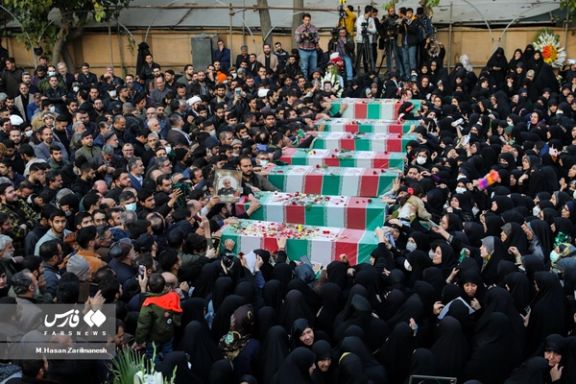
"The attacks have mostly occurred either due to the lack of information on the part of the Zionists about the presence of Iranian forces, or are conveyed through intermediaries, such as the Russians, and Iranian forces are martyred solely due to some miscoordination," Fars claimed.
The latest Israeli attack took place last week, and Iran admitted that two of its high-ranking officers were killed in Syria, vowing retaliation.
While supporting Hamas financially and militarily, Tehran has decided not to become directly involved in the Gaza war to defend its ally, Hamas. This is apparently seen by the IRGC as a potential domestic and regional embarrassment, after decades of threats that it can wipe Israel off the map with its ballistic missiles.
Since the war started on October 7, IRGC generals have been frequently making claims of fielding new weapons systems, and issuing warnings against any power that would dare to challenge them. Meanwhile, the United States sent a naval strike group led by the aircraft carrier Dwight D. Eisenhower into the Persian Gulf last week with the United Kingdom also dispatching an additional warship.
One way in which IRGC has tried to compensate for its lack of direct action to defend Hamas has been frequent attacks by Iranian proxies against US bases in Iraq and Syria as well as escalating attacks on vessels in the Red Sea by Yemeni Houthi forces. But Tehran has tried to disavow any role in these attacks, insisting that “resistance” forces are acting on their own in defense of Hamas.